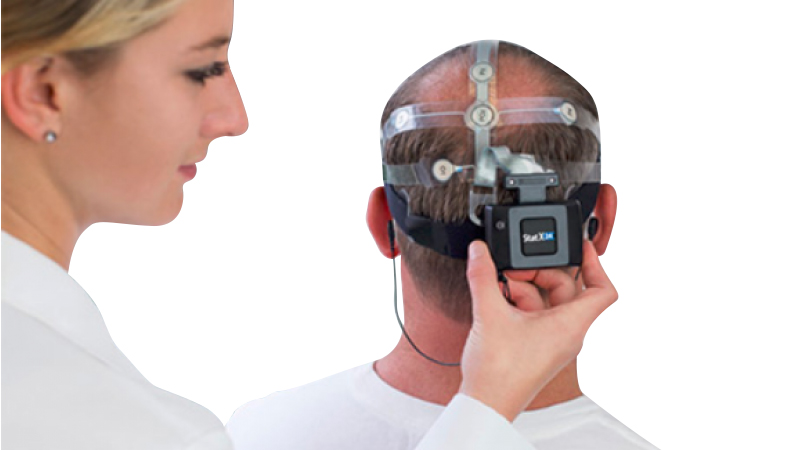1021 阅读 2020-08-17 09:13:02 上传
以下文章来源于 宏观语言学
Loughborough University | Wolfson School of Mechanical, Electrical and Manufacturing Engineering
Supervisor:Prof M Walls
Application Deadline:Friday, September 18, 2020
Funded PhD Project(Students Worldwide)
About the Project
Application details:
Reference number: FP-MW-202021
Start date of studentship: 01 October 2020
Closing date of advert: 18 September 2020
Interview date:
Supervisors:
Primary supervisor: Prof. Michael Walls
Secondary supervisor: Dr Patrick Isherwood, Prof. Gary Critchlow
The growth pf solar photovoltaics is vital to the changes needed in our energy generation to mitigate climate change. Soiling on solar panels is a serious problem that has received insufficient attention. This objective of this project is to develop a super-hydrophobic coating for glass that will reduce soiling and make the panels easier to clean. Development of a durable coating will transform the return on investment and drive increased deployment of solar across the globe.
Full Project Detail
The global market for solar photovoltaic modules has grown at an extraordinary rate over the past 15 years driven by a worldwide desire for an increase in renewable energy to combat climate change. The cost of modules has reduced dramatically as efficiency and deployment has increased.
However, with increasing experience of large-scale solar utilities, soiling of the cover glass has been identified as a serious problem. Soiling leads to significant losses in power output. Despite this, the problem has been largely overlooked. This project, brought together by a collaboration between the Materials Department and the Centre for Renewable Energy Systems Technology (CREST) at Loughborough University, will explore the use of suitable chemistry formulations to produce a transparent, environmentally stable and abrasion resistant super-hydrophobic coating. The coating will be used to coat solar cover glass to reduce surface contamination and make the surfaces easier to clean.
This project will use advanced techniques to measure the performance of a different types of hydrophobic coatings. These coatings may also include anti-reflection capability to further increase light trapping in the solar module. Durability is a key issue. The project will make use of the extensive accelerated environmental testing facilities available in CREST. These Lab based results will be correlated with outdoor monitoring in different environments including Loughborough, Colorado and Turkey.
Loughborough University
Loughborough University is a top-ten rated university in England for research intensity (REF2014). In choosing Loughborough for your research, you will work alongside academics who are leaders in their field. You will benefit from comprehensive support and guidance from our Doctoral College, including tailored careers advice, to help you succeed in your research and future career.
Find out more: http://www.lboro.ac.uk/study/postgraduate/supporting-you/research/
Entry requirements
Applicants should have, or expect to achieve, at least a 2:1 Honours degree (or equivalent) in Chemistry, Physics, Materials Science or an Engineering subject. A relevant Master’s degree and/or experience in one or more of the following will be an advantage: Solar, Coatings, Thin films, Optics.
Contact details
Name: Prof. Michael Walls
Email address: j.m.walls@lboro.ac.uk
Telephone number: +44 (0)1509 635201
How to apply
All applications should be made online at http://www.lboro.ac.uk/study/apply/research/. Under programme name, select ‘Electrical Engineering’. Please quote reference number: FP-MW-202021
Funding Notes
The studentship will provide a tax-free stipend of £15,285 p/a, plus tuition fees at the UK/EU rate (currently £4,407 p/a). While we welcome applications from non-EU nationals, please be advised that it will only be possible to fund the tuition fees at the international rate and no stipend will be available.
University of Bristol School of Management PhD
University of Bristol | School of Management
Funded PhD Project (Students Worldwide)
About the Programme
Research is central to the activities of the School of Management at the University of Bristol. The department comprises a group of academic staff with a variety of interests and a focus on research that has practical relevance.
The results of the most recent UK-wide research assessment, REF2014, rated 78 per cent of the research activity in business and management as 'world leading' or 'internationally excellent'.
We have an enthusiastic research community, a welcoming atmosphere and excellent research facilities. We are large enough to have expertise in many fields, but small enough to be friendly and allow regular contact between students and staff members. Currently there are 15 research students and more than 50 research active academics enrolled in the School.
Why choose Bristol for your PhD in Management?
Study at a top 5 UK university for research (THE analysis of REF 2014)
Fulfill your career aspirations with our customised personal development strategy
Receive excellent support within a vibrant PhD community
Example Areas of Research
International Business Management and Strategy
Marketing and Consumption
Operations and Management Science
Work, Organisation Studies and Public Policy
Inclusive Economy and Civic Values
Sustainable Production and Consumption
Innovation and Digitalisation
Funding Notes
We also offer:
Funded PhD programme (European / uk students only)
Funded PhD programme (uk students only)
Possible external funding / awaiting funding decision
Self-funded PhD students only
Funding for 2020/21
The Faculty of Social Sciences and Law has an allocation of 1+3 and +3 ESRC scholarships. Applicants may also be interested in applying for funding from the University of Bristol scholarship fund or alumni PhD scholarship fund.
PhD student in Comparative bioacoustics, seal vocal development, evolution of speech, and/or music cognition
Max Planck Institute for Psycholinguistics | Language & Genetics
Application Deadline:Monday, August 24, 2020
Funded PhD Project (Students Worldwide)
About the Project
(Starting salary: € 33,305 p.a.)
4-years full time
Comparative Bioacoustics Group
Max Planck Institute for Psycholinguistics, Nijmegen, the Netherlands
The Max Planck Institute (MPI) for Psycholinguistics, Nijmegen, the Netherlands, is offering a fully-funded PhD student position in comparative bioacoustics/seal pup vocal development/evolution of speech/music cognition within the newly established Comparative Bioacoustics Group. The host research group, led by Dr. Andrea Ravignani, investigates the evolutionary bases of speech and music, mostly performing (non-invasive) cross-species behavioral research in seals, humans, and other mammals. The group has an international spirit and is open to diverse perspectives and approaches.
Job description
The PhD projects will investigate the cognitive, evolutionary and neurobiological bases of speech and musical rhythm in humans, seals and other animals. Research will focus on one, or span several, of the 5 research lines in the Comparative Bioacoustics Group (see http://www.mpi.nl/department/comparative-bioacoustics/20/projects for details).
Research lines and questions pursued by the doctoral candidate include:
1) Data-centred comparative research on rhythm and vocal learning to unveil macroevolutionary patterns across species relevant to human speech and music;
2) Empirical work in seal bioacoustics, targeting how seal pups develop their vocal learning (‘speech-like’) and rhythmic (turn-taking) capacities, possibly like human babies;
3) Wet-lab research on the comparative neurobiology and vocal tract anatomy in marine mammals;
4) Understanding the biological bases, cultural variability, and cultural transmission processes underlying the human rhythmicity in music;
5) Building mathematical and computational models to understand rhythmic and interactive communication in humans and other animals.
These research strands will be pursued with a wide range of methods including (but not limited to) sound recordings, behavioral methods, neuroimaging, neuroanatomy, EEG, vocal tract anatomy, spirometry, and computational modeling, depending on the nature of the project and
the candidate's interest.
Potential day-to-day activities for the doctoral candidate include:
• Performing seasonal projects with off-site animal facilities; in particular, performing (noninvasive) hands-on animal research with seal pups;
• Running large-scale cross-species analyses using already available data;
• Running lab-based, web-based and citizen-science studies with human adults;
• Reviewing the published literature relevant to the doctoral project;
• Data processing and data analysis;
• Participating in scientific dissemination activities;
• Selecting and supervising interns and master students, who may also help with data collection for the doctoral project.
Requirements
The successful applicant will have as many of the following:
• Obtained or shortly expects to obtain a MSc or MA qualification in Biology, Animal Behavior, Zoology, Ecology & Evolution, Neuroscience, Cognitive Science, Experimental/Comparative Psychology, Speech, Language Sciences, or a related discipline involving the study of sound and/or cognition and/or behavior; Masters degrees should involve several months of experience and training on a scientific project;
• Notice, however, that motivation, curiosity, and interest in the research topic are much more important than the specific training the candidate obtained during their BSc or MSc;
• Some knowledge of speech, bioacoustics, neuroscience and/or animal behavior, and familiarity with methodologies used in experimental psychology and/or animal behavior;
• Affinity with or interest in animals, and potentially being comfortable around them;
• Good written and verbal English;
• Good social and organizational skills;
• Willingness to travel in the Netherlands (especially Pieterburen and Maastricht) and abroad;
• A solid background in experimental design and data analysis is an advantage;
• Experience with computer programming is an advantage, as is experience with the use of Python and/or R.
What we offer
The PhD position is fully funded for 4 years (starting gross salary is 2,569 per month). The institute and research group provide fully equipped research facilities, technical support, as well as a conference and travel budget. PhD students can be involved in the International Max Planck Research School for Language Sciences, which offers core and individually chosen coursework to complement the PhD research and training in soft skills such as writing and presentation.
Employer
The MPI in Nijmegen is an internationally leading research institute studying how our minds and brains process language including their underlying genetic architectures and similarities with other animals. The institute has a multidisciplinary stimulating research environment, excellent facilities and computing resources. We are situated on the campus of the Radboud University, and have close collaborative links with the Donders Institute for Brain, Cognition and Behaviour, and the Human Genetics Department of Radboud University Medical Centre. Nijmegen is a young, diverse and student-friendly city. We are part of the Max Planck Society, an independent
non-governmental association of German-funded research institutes dedicated to fundamental research in the natural sciences, life sciences, social sciences, and the humanities. The Max Planck Society is an equal opportunities employer. Applications from women, people with disabilities and under-represented groups are particularly encouraged.
Application procedure
Please send the following documents in a single pdf file by e-mail to Lianne Peters (Secretary, Comparative Bioacoustics Group: lianne.peters@mpi.nl), with subject ‘PhD positions CBA group: application’. Please indicate whether we can keep your application details and personal information for up to 2 years, in the event that future positions at the MPI arise. Receipt will be acknowledged.
i. A one-page statement of why you are interested in this post and why you consider yourself a good match for the post;
ii. A one-page statement of which research projects you would like to pursue and the suggested starting date;
iii. A current CV, listing relevant experience and containing a list of your publications; iv. Names, email addresses and contact numbers of three referees who would be willing to
provide letters of recommendation
For informal scientific enquiries, please send an email to Andrea Ravignani, leader of the Comparative Bioacoustics Group (Andrea.Ravignani@mpi.nl) with subject ‘PhD positions CBA group: scientific enquiry’. For general enquiries, please send an email to Lianne Peters (lianne.peters@mpi.nl) with subject ‘PhD positions CBA group: general enquiry’. Short-listed candidates will be invited to participate in a skype interview and site visit to the institute. The job interview will be held in English.
Applications will be reviewed from August 24th 2020 onwards until the positions have been filled. The starting date is negotiable and should be between October 2020 and March 2021.












